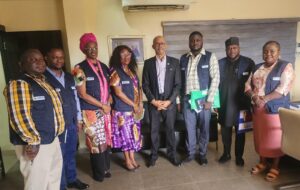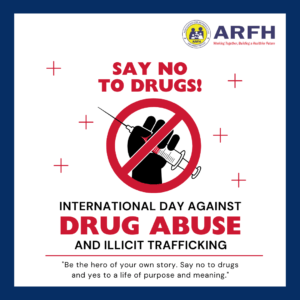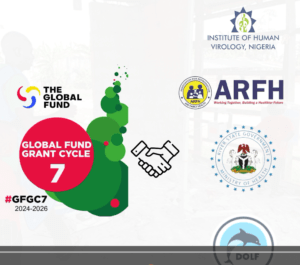Communities Volunteers (CV) are key to connecting individuals to facilities where health services are provided. Sub-optimal access to health services remains a major bottleneck to the elimination of TB as a public health issue. This is related to the low level of awareness about TB at the population level. In Nigeria were TB services are free, misleading myths and social stigma affect the demand for TB services at the grassroots, revealing the sad reality that people continue to die from a preventable and curable disease. Nigerians living with TB often suffer from discrimination, stigma, rejection and social isolation as TB also thrives in the context of poverty and discrimination. The implication of this is that, Patients with TB are often too sick to work, but they may still have to support their families and pay for treatment. For the poor communities with patients on treatment, adherence to the treatment regimen remains a challenge. This where Community Volunteers connects the dot.
Poor patient adherence to medication is one of the major hindrances to effective TB control in Nigeria and globally. The ‘Directly Observed Treatment, Short-course’ (DOTS) strategy of National TB Control programme focuses on diagnosis, a standard drug regimen, individual monitoring and a secure supply of drugs. While this improves cure rates, it is labour intensive. Community Volunteers (CVs) support health staff at the community level, to ensure that TB patients adhere religiously to treatment regimen.
Mrs. S.B Otunla, one of the trained community volunteer supporting the TB programme Erin-ile, Kwara State – one of the high burden states in Nigeria. She and her fellow volunteers have been involved in the community TB outreach programmes since 2011 where they identified and referred suspects to the DOTS Center at General Hospital Offa, Kwara State. They work with community leaders to reduce stigma and provide quality treatment Adherence Support to patients’ through-out the treatment period.
“Tuberculosis is curable, I thank God for Global Fund,” says Mrs. Funmilayo Jenyo, 54 years old market women in Erin-ile who has successfully completed her treatment. ’’The only way for people like us is to complete our TB treatment’’ She continues.
Mrs, Jenyo managed to complete her treatment due to the dedication and perseverance of the Community Volunteers and the Local TBLS Officer.
Through the Global Fund, ARFH is working with Health Alive Foundation on the CTBC component, to mobilize Community Based Organisations (CBOs) and Community volunteers to increase demand for TB services through health education, social mobilization and awareness creation as well as to provide treatment adherence support to patients. This has translated into early detection, referral and treatment of TB. Currently, CTBC is being implemented in 24 states on the program. ARFH, in collaboration with Health Alive Foundation has trained over 4,400 CVs and has built the capacity of 420 CBOs to support the control of TB in their communities. The ultimate goal of the program remains to get communities to take ownership of the program in order to ensure sustainability of TB control at the community level long after the cessation of donor support
.




